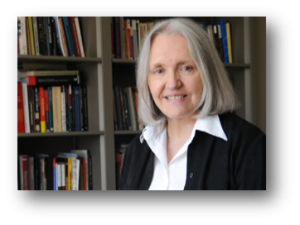Urbanizing Technology: The Mobility Complex
Led by Professor Saskia Sassen, this signature research project explores the challenges of urbanizing technology and the implications of technological obsolescence for “intelligent cities.” It envisions a trans-disciplinary urbanism that can advance the making of cities by discovering new urban capabilities, and more fully understanding the construction of presence and publicness.
Since 2009, several annual conferences held under the auspices of the project have interrogated contemporary urbanism from not just multiple, but also multidimensional perspectives. Co-organized by the Committee on Global Thought and the Graduate School of Architecture, Planning and Preservation, these conferences and workshops have brought together sociologists, theorists, historians, urbanists, visual artists, choreographers, architects, activists, environmentalists, public health experts, journalists and others. Past events have focused on presence and absence in urban spaces, super-cities and Chinese urbanism, ecological crises, and new forms of war.
In 2014, the project entered a phase focused on mobility. Mobility is not only material, it is perception: we understand movement not just when we see it, but when we anticipate it, and, emphatically, in the digital world. How can we use this type of knowledge about mobilities invisible to our eye, like the digital or potential, to expand the meaning of mobility as such?
As the project disassembles the construct of mobility (and globality) from a restrictive psychology equating globalizing mobility to geographic mobility, it encounters an equally problematic relationship of mobility to claims of power or domination. We encounter enforced immobility in locations like camps for displaced people or prisons. Even so, new mobilities allow those who do not or cannot travel to experience themselves as part of larger geographies marked by recurrence of meanings, struggles, and imaginaries in multiple other locations. A reconceptualized mobility expands comprehensible meaning/experience generation, yielding participation in larger spaces, including global spaces. Further, it creates horizontal globalities that need not go through vertical and centralizing institutions. Connection comes about through mobility and globality even in the absence of geographic movement.
Support for these events and research has been provided by the Audi Urban Future Initiative and the Andrew A. Mellon Foundation.